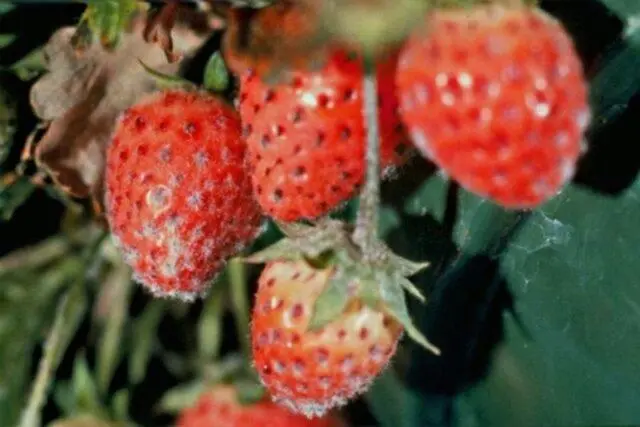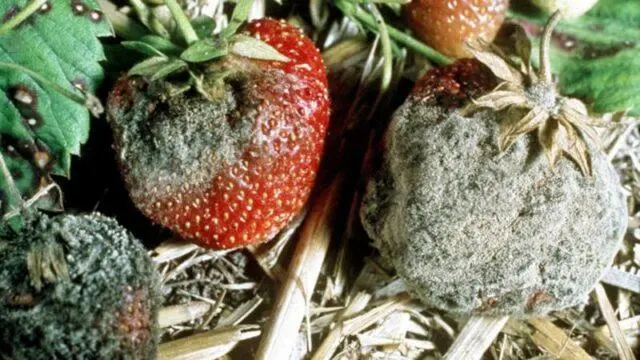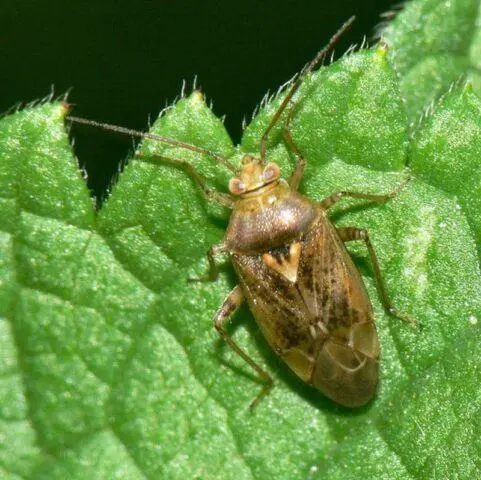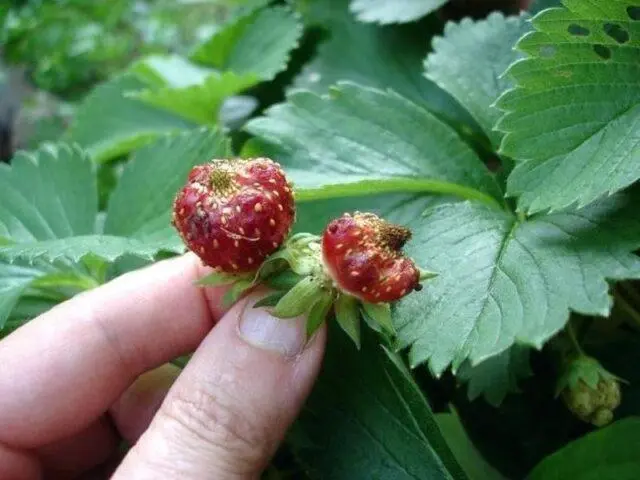Contents
Strawberry Slastena is a popular hybrid with repeated autumn fruiting. To successfully grow berries on the site, you need to study the characteristics of the culture and the rules of care.
History of origin
Hybrid strawberry Slastena F1 does not have a bright breeding history. The variety was bred by the domestic manufacturer SeDeK, which has been supplying seeds and seedlings of garden crops to the horticultural market since 1995.
The designation F1 in the name indicates that the strawberry has particularly high characteristics. The variety shows abundant fruiting and produces large juicy berries.
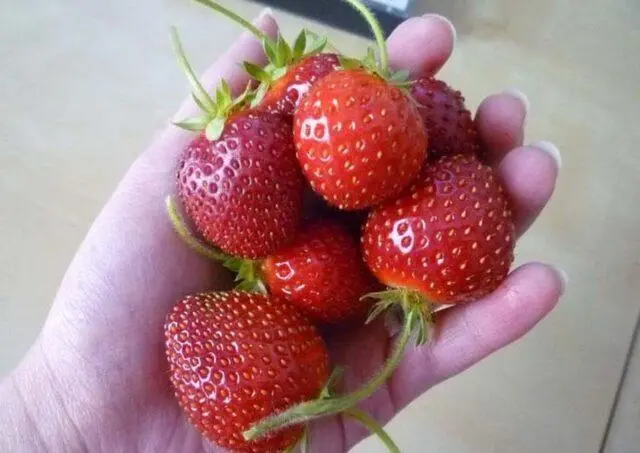
Strawberry varieties labeled F1 are also called heterotic hybrids.
Characteristics and description of strawberry varieties Slastena F1
Remontant strawberry Slastena is a compact plant up to 25-30 cm tall. The leaves of the variety are medium in size, light green in color. Flowering shoots are strong and thick, hold berries well and do not fall to the ground.
The buds of the Slastena variety are white and very plentiful. They appear several times a season at intervals of about a month.
Appearance and taste of berries
Strawberry hybrid Slastena produces medium-sized berries, round in shape and bright red in color. The peel of the fruit is glossy, with small sunken seeds, the pulp is dense and juicy, without voids.
The variety has a pleasant rich aroma and sweet and sour taste. The nutritional properties of strawberries are considered dessert, it is equally well suited for fresh consumption and in preparations.
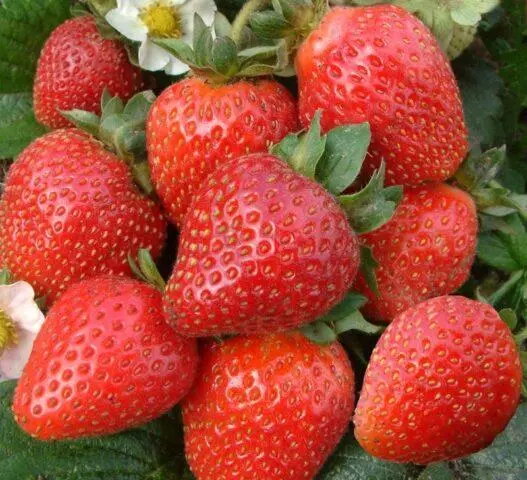
Strawberry fruits Slastena reach 15-18 g by weight
Slastena is often used to make preserves and jams, marshmallows and pastry fillings. Berries are suitable for freezing, as they hold their shape well. Even when fresh, the fruits are stored for a long time and can be transported over long distances.
Flowering period, ripening period and yield
Strawberry flowering Slastena occurs at standard times – in May or early June. By the middle of the first summer month, the variety bears fruit for the first time. The yield indicators of the plant are high – from one bush you can collect 1,5-2 kg of ripe berries.
Frost resistance
Strawberry Slastena has average frost resistance. The horticultural crop tolerates temperatures as low as -10 ° C, but in severe cold it begins to freeze slightly. For the winter, the plant must be covered with agrofiber and spruce branches. The risk of damage to bushes is especially increased with insufficient snow cover.
Disease and pest resistance
Strawberry Slastena has good immunity and rarely suffers from fungi and garden parasites. Several diseases pose a danger to her:
- powdery mildew – a white powdery coating appears on the leaves;

Ripe strawberries can suffer from powdery mildew.
- gray rot – brown and grayish necrotic areas appear on the plant;

With gray rot, the fruits and roots of strawberries soften, and the plant dies
Some pests can worsen the development of Slasten’s strawberries. Namely:
- grass blind bug – the parasite attacks the flowers and ovaries of strawberry fruits;

Grass horsefly significantly reduces the yield of strawberries
- strawberry mite – an insect leads to yellowing and wrinkling of the leaves.

When affected by a strawberry mite, strawberries do not bear fruit or produce deformed berries
You can protect Slasten’s strawberries from diseases and pests with the help of proper agricultural technology. It is necessary to remove plant debris from the garden in time and prevent waterlogging of the soil. The fight against existing diseases is carried out in the early stages with fungicidal and insecticidal preparations, a solution of copper sulfate and Bordeaux liquid.
Pros and cons of the variety
The Slastena F1 hybrid has many advantages, but it also has disadvantages. Before planting a crop on the site, it is necessary to take into account all the features of the variety.
Pros: large berries; remontant – fruiting is repeated several times per season; · good germination; resistance to fungi and pests; Dessert flavor fruit versatility. | Cons: Does not tolerate drought well May freeze at temperatures below -10 °C; Many gardeners complain that the fruits, contrary to the promises of the manufacturer, are too small. |
Rules of landing
The strawberry variety Slastena is grown from seeds, first at home, and then transferred to open ground. The short algorithm looks like this:
- In late February or early March, the material is sown in a substrate prepared from sand and humus in a ratio of 3:5.
- Seedlings are moistened, covered with a film and put in the refrigerator for three days.
- As time passes, the box is moved to a warmer place and the seedlings are waiting for germination.
- Water and air the seedlings regularly.
Slastena is transferred to the garden from mid-May to June after the appearance of 6-7 true leaves.
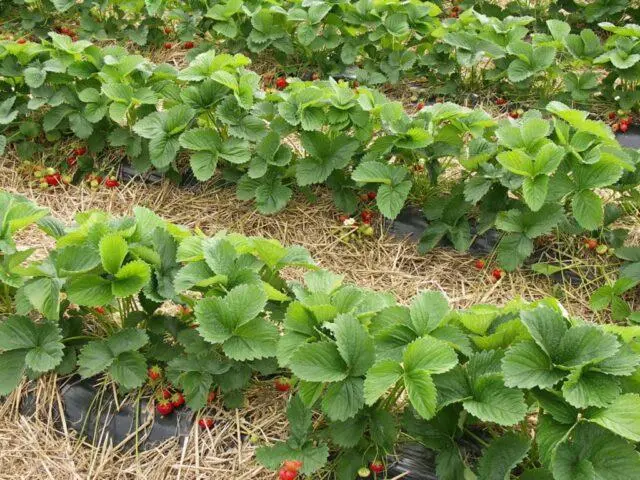
Strawberry planting Slastena on the site is carried out in rows, leaving 20 cm between seedlings
Features of care
Remontant strawberries have simple care requirements. When growing it is necessary:
- water the bushes with warm settled water every three days;
- regularly loosen and weed the soil from weeds;
- inspect the plant for diseases and pests and treat in time.
Top dressing is performed several times per season. In the spring, urea or an infusion of chicken manure is added to the soil; iodine and yeast solutions are added during the flowering period. During fruiting, Slastene will benefit from potassium monophosphate. In October, it is recommended to fertilize the bed with compost or humus.
Conclusion
Strawberry Slastena is a popular large-fruited variety of domestic selection. The plant has certain disadvantages. However, gardeners speak well of the variety, especially highlighting the high yield and strong immunity.










